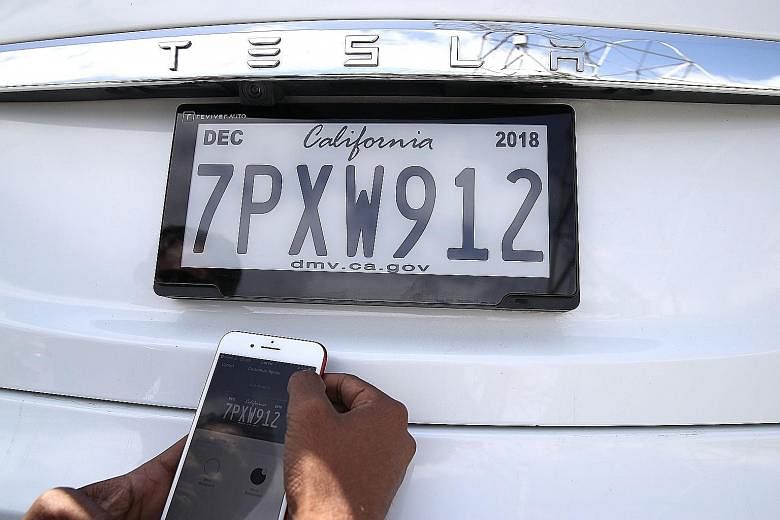FOSTER CITY (California) • The mundane vehicle licence plate, a virtually unchanged vestige from the dawn of the car, is in the midst of a 21st-century makeover.
Several firms are applying digital technology to what has long been a slab of metal, in hopes of making it cheaper to update one's vehicle's registration - and turning it into a portal to the connected world.
Such changes benefit the vehicle owner and motor vehicle regulators, said Reviver Auto, the firm behind the technology.
"This is not about a licence plate. It's about connection. With a digital plate, you can be all connected in just one place," said Reviver chief executive Neville Boston.
Reviver Auto's RPlate can be validated via cellular signal when registration fees are paid, saving a state the cost of postage and materials for paper renewals.
The screen can display anything, making it easy to switch designs if an owner wants to buy a personalised plate. If the vehicle is stolen, the word "STOLEN" can be remotely added to display that fact.
When the vehicle is parked, businesses can display advertisements on the plate, even targeting a vehicle's particular location because the plate is connected to GPS. The GPS would also allow commercial fleet owners to track their vehicles.
To make it work, Reviver uses the E Ink technology that is in tablet book readers such as the Kindle and Nook. The system produces a bright black-and-white image that Mr Boston likens to that found in a Kindle Paperwhite.
The 0.9kg unit is able to withstand strong winds and rain. As with an e-book reader, the image will remain even if the unit runs out of power.
Reviver has permission to sell the plates in California as part of a pilot programme. The test will run through this year, with a report due in 2020. State legislation authorising a pilot programme for alternatives to traditional plates and stickers was signed in 2013, and Reviver was the only bidder.
The firm will start testing its RPlate in Arizona next month, and Nevada and Pennsylvania later this year. By next year, it expects to expand its pilot programmes to Colorado, Georgia, Illinois, Michigan and Washington.
Such plates are not cheap, though. The consumer version, sold through car dealers, will cost US$699 (S$953), plus US$99 for the first year and US$75 the second year to connect to the system's network.
Mr Boston expects the upfront cost for consumers to drop by 30 per cent in less than a year, and the firm's goal is to eventually get it down to US$150.
The company is also conducting a test in Dubai in the United Arab Emirates, where drivers will be able to use the plate to alert other drivers to road conditions.
NYTIMES

